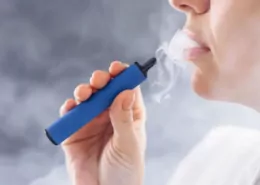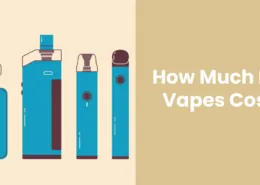UK’s Tobacco and Vapes Bill: A Landmark Step Towards a Smoke-Free Nation
The UK government has introduced the Tobacco and Vapes Bill, a groundbreaking legislation aimed at creating a smoke-free nation and tackling the growing concern of youth vaping. This comprehensive bill encompasses a wide range of measures designed to phase out the sale of tobacco products, regulate the advertising and sponsorship of vapes and nicotine products, and strengthen enforcement activities.
Key Measures of the Tobacco and Vapes Bill
Smoke-Free Generation
The bill introduces the concept of a smoke-free generation by gradually phasing out the sale of tobacco products across the country. It makes it an offence to sell tobacco products, herbal smoking products, and cigarette papers to anyone born on or after January 1, 2009. This measure aims to break the cycle of addiction and disadvantage by ensuring that children born after this date will never be able to legally purchase tobacco products.
Ban on Advertising and Sponsorship
The bill mirrors the impactful restrictions on tobacco by banning the advertising and sponsorship of all vapes and other nicotine products, such as nicotine pouches. This measure aims to prevent the promotion of these products to vulnerable populations, particularly young people.
Closing Loopholes and Strengthening Age Restrictions
The bill closes loopholes and bans the sale of all vapes and nicotine products (including non-nicotine vapes) to individuals under the age of 18. It also prohibits the free distribution of these products and their sale from vending machines. These measures aim to protect young people from accessing and becoming addicted to these products.
Regulatory Powers
The bill provides ministers with powers to regulate the flavors, packaging, and display of all vapes and other nicotine products. It also grants powers to amend and update product standards, ensuring that the regulations keep pace with the evolving market and scientific evidence.
Expanding Existing Legislation
Smoke-Free Outdoor Spaces
The bill allows for the expansion of current indoor smoking restrictions to certain outdoor public places and workplaces. In England, the government is considering extending smoke-free outdoor spaces to areas outside schools, children’s playgrounds, and hospitals. However, outdoor hospitality settings and wider open spaces like beaches are not within the scope of the bill’s powers. The specific settings that will become smoke-free will be determined through secondary legislation and subject to a full consultation process.
Vape-Free and Heated Tobacco-Free Spaces
The bill provides powers to make places vape-free and heated tobacco-free, insofar as they are already designated as smoke-free spaces. Vape usage is already prohibited in many places, and any proposals for additional restrictions will undergo a full public consultation.
Enforcement and Registration
Licensing Scheme
The bill strengthens enforcement activities by providing powers to introduce a dedicated licensing scheme for the retail sale of tobacco products, herbal smoking products, cigarette papers, vapes, and nicotine products in England, Wales, and Northern Ireland. In Scotland, the existing retail register will be expanded to include herbal smoking products and nicotine products.
Fixed Penalty Notices
Enforcement authorities in England and Wales will be granted the power to issue fixed penalty notices (FPNs) of up to £200 for offences such as the underage sale of tobacco and vaping products. FPNs set at £2,500 will be imposed for offences related to licensing.
Product Registration Scheme
The bill includes powers to introduce a new product registration scheme for tobacco, vapes, and nicotine products. This scheme will outline requirements that producers and manufacturers must meet before a product can be sold to consumers.
Rationale for Intervention
Health Impact of Smoking
Smoking remains the leading preventable cause of death, disability, and ill health in the UK. It claims approximately 80,000 lives annually, accounts for 1 in 4 of all cancer deaths, and kills up to two-thirds of its long-term users. Smoking significantly increases the risk of numerous major health conditions throughout an individual’s life, including strokes, diabetes, heart disease, stillbirth, dementia, and asthma.
Economic Burden
Smoking imposes a substantial economic burden on society, costing the UK economy and wider society £21.8 billion per year. This includes an annual loss of £18.3 billion in productivity due to smoking-related lost earnings, unemployment, and premature death, as well as costs to the NHS and social care amounting to £3.1 billion. These resources could be redirected to deliver millions more appointments, scans, and operations each year.
Second-Hand Smoking
Second-hand smoking poses health risks even in outdoor settings, particularly for vulnerable populations such as children, pregnant women, and individuals with pre-existing health conditions like asthma and heart disease. Exposure to second-hand smoke can be high in certain public settings, and if smoke can be smelled, it is being inhaled.
Youth Vaping Concerns
While nicotine vapes can play a role in helping adult smokers quit, selling these products to individuals under the age of 18 is illegal. Vaping and nicotine products carry risks of harm and addiction due to their nicotine content and unknown long-term effects. These risks are particularly concerning for adolescents, whose brains are still developing. The long-term harms of inhaling colors and flavors are unknown, but they are unlikely to be beneficial. Youth vaping has more than doubled in the last 5 years, with 25% of children having tried vaping in 2023. The use of other nicotine products, such as nicotine pouches, is also increasing, especially among young men.
Geographical Scope and Timeline
The Tobacco and Vapes Bill will apply UK-wide, building on the existing legislative frameworks of the four nations to create a cohesive approach to regulating tobacco and vaping products. The UK government has collaborated with the Scottish Government, Welsh Government, and the Northern Ireland Executive in developing the bill, respecting the devolution settlement.
Subject to parliamentary approval, the age of sale restrictions for tobacco will come into force on January 1, 2027, when those born on January 1, 2009, turn 18. The implementation timeline for measures introduced via regulations will be outlined in the secondary legislation.
- Bestselling Vapes in UK After Disposable Ban: What to Stock 2025 - August 8, 2025
- Argentina Debates Stricter Vape Laws Amid Prohibition Failures - August 8, 2025
- Nigeria Advocacy Group Urged to Hike Tobacco & Vape Tax by 100% - August 8, 2025









